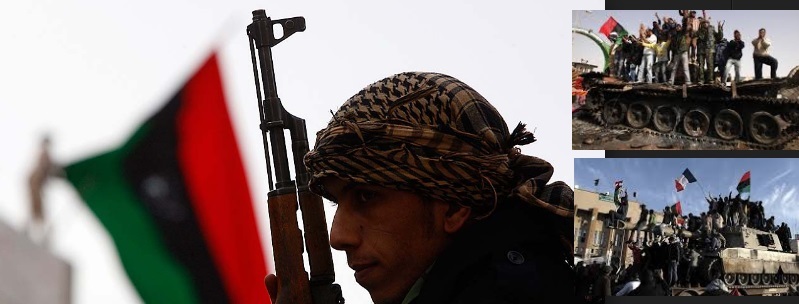British citizens were sent to Libya, including those who had been stopped under “Schedule 7” counter-terrorism orders. Intelligence officers from MI5, the UK’s domestic security agency told Libyans that the British government had no problem with suspected terrorists fighting against Gaddaf at the time.
Known Libyan radicals were released from control order in Britain, given their passports back and sent off to Libya. They were received by British special forces and British fighter planes were standing ready to lend air support in the attack on the legitimate Libyan government.
As FWM reported earlier, the father of the Manchester suicide bomber fought in Libya for a known al-Qaeda entity. His son, then 16 years old, joined him in 2011 in the Tripoli Brigade to oust Gadhafi as the “Arab Spring” unleashed turmoil in North Africa and the Middle East.
The son returned to Manchester but members of Libyan exile society in Manchester reported him at least five times to the local authorities, suspecting him to be a danger. The authorities ignored the warnings.
Meanwhile France’s interior minister said the 22-year-old had “proven” links with Islamic State and that both British and French intelligence services had information that the attacker had been to Syria, but the attacker was never red-flagged.
According to the Financial Times Salman Abedi came back to Britain only days before the attack via Turkey and Germany. The attacks in Paris, in Brussels, Berlin and Manchester as well as in Libya, Syria and Iraq, “have their ideological roots in Wahhabism, the extreme version of Salafist Islam promoted in Saudi Arabia and Qatar” the blogger Moon of Alabama noted.
“But the Saudi and Qatari rulers pay extraordinary amounts of protection money in the form of weapon purchases from British and US companies,” he added.
A professor at the University of St. Andrews, Phillips O’Brien, issued a statement via The Courier after the ISIS suicide bombing at the Ariana Grande concert in Manchester suggesting that Europeans accept terror as a normal part of daily life.
Professor O’Brien said: “What the last decade and a half have shown is that these events are now part of life, not just in major western cities such as Paris, Berlin, Boston or London, but throughout the world.”
The UK professor then suggested that while these “incidents” are terrible, and now happen regularly, they “lead to a very small number of deaths compared to the most mundane of activities.”
O’Brien joined the Institute for the Study of War and Strategy at the University of St. Andrews in September, 2016. He is a professor of “Strategic Studies” and considered an expert on US foreign policy in the 20th and 21st centuries.













No comments.
By submitting a comment you grant Free West Media a perpetual license to reproduce your words and name/web site in attribution. Inappropriate and irrelevant comments will be removed at an admin’s discretion. Your email is used for verification purposes only, it will never be shared.